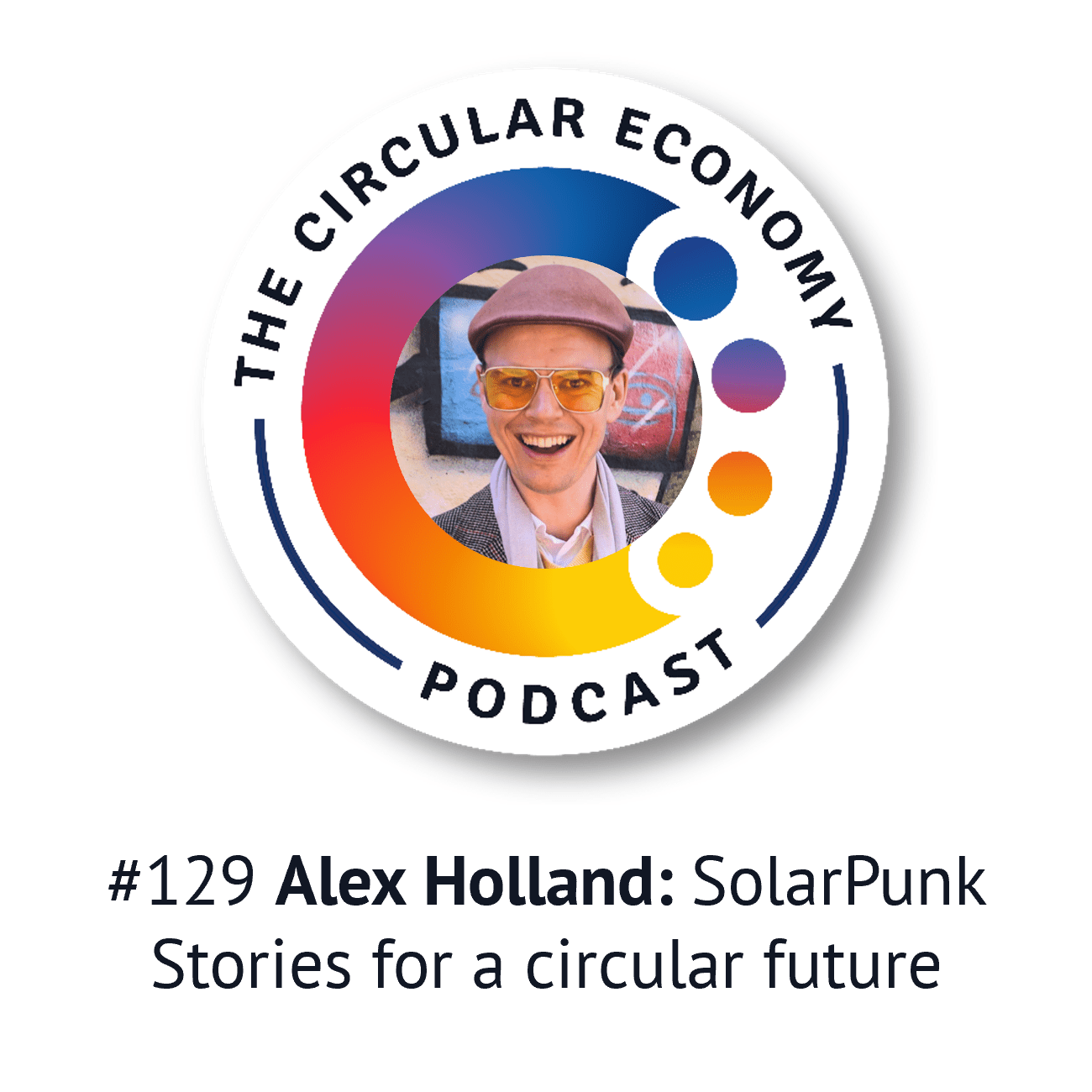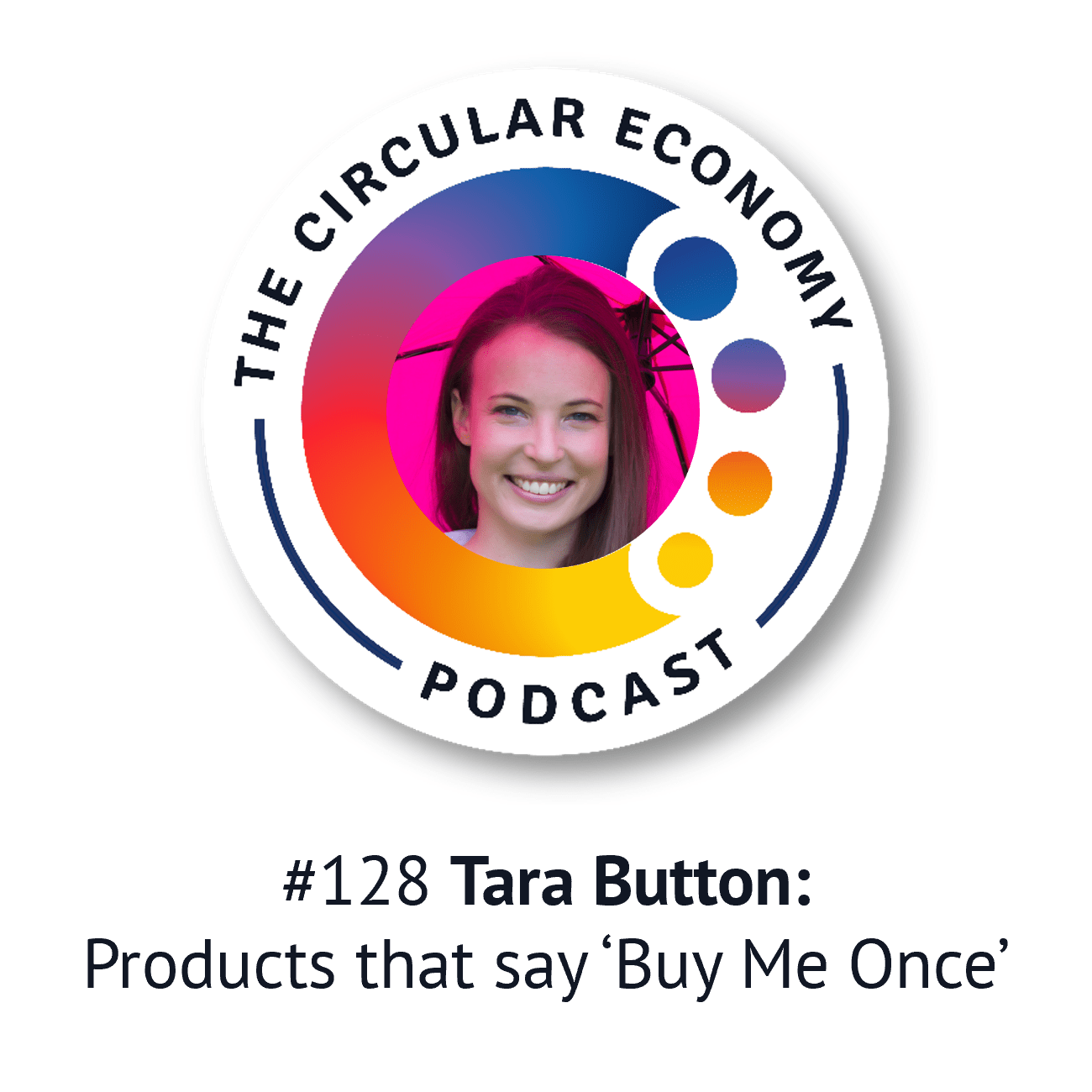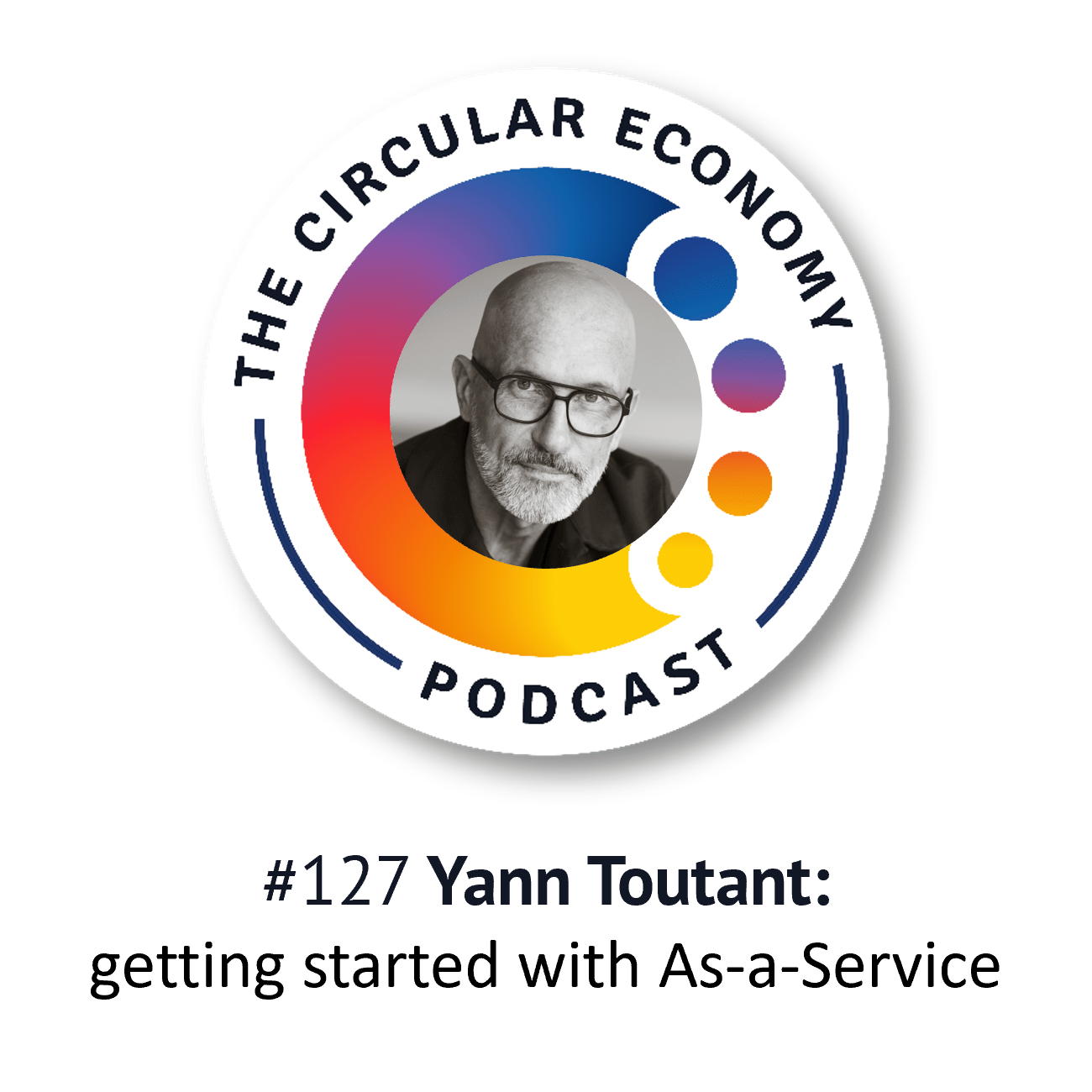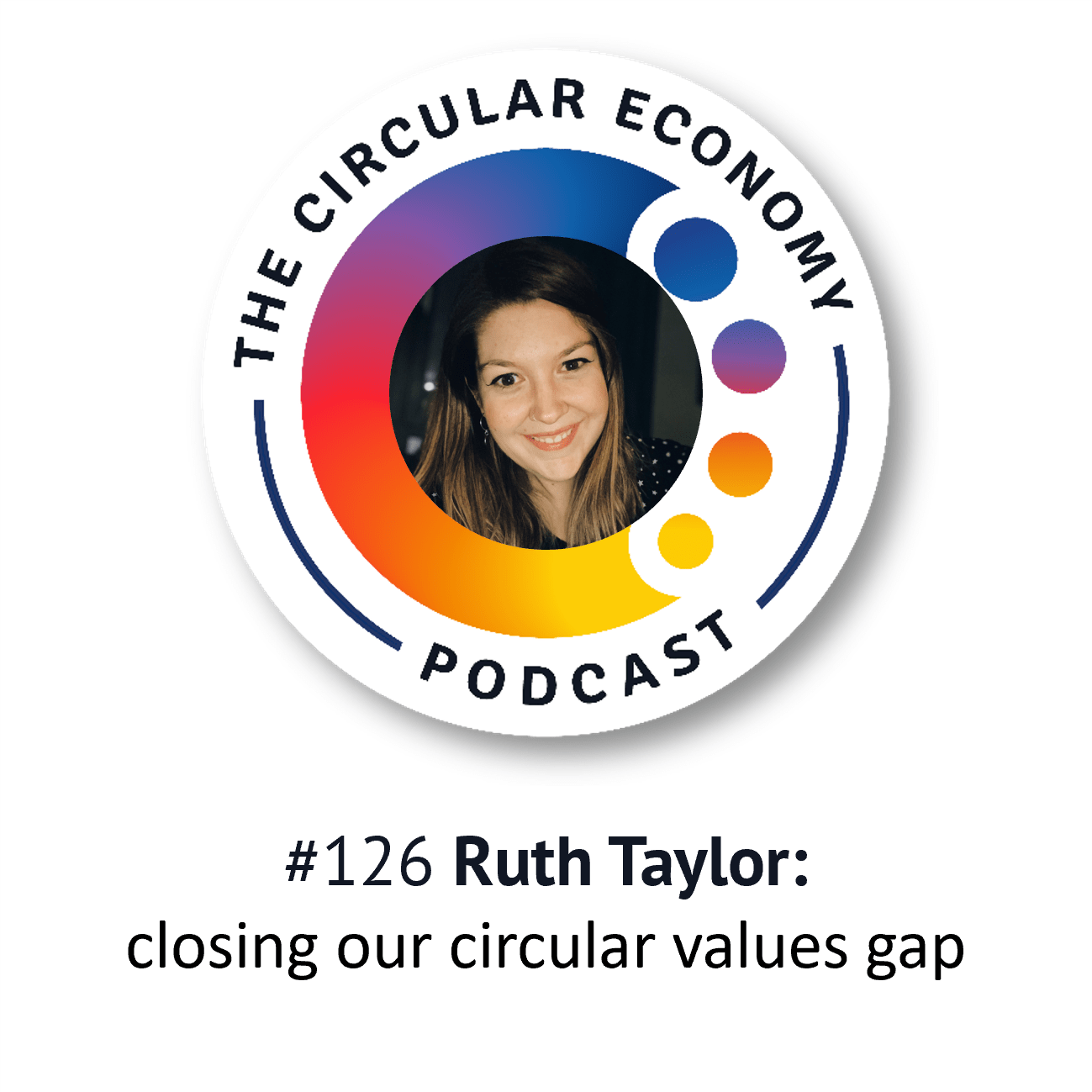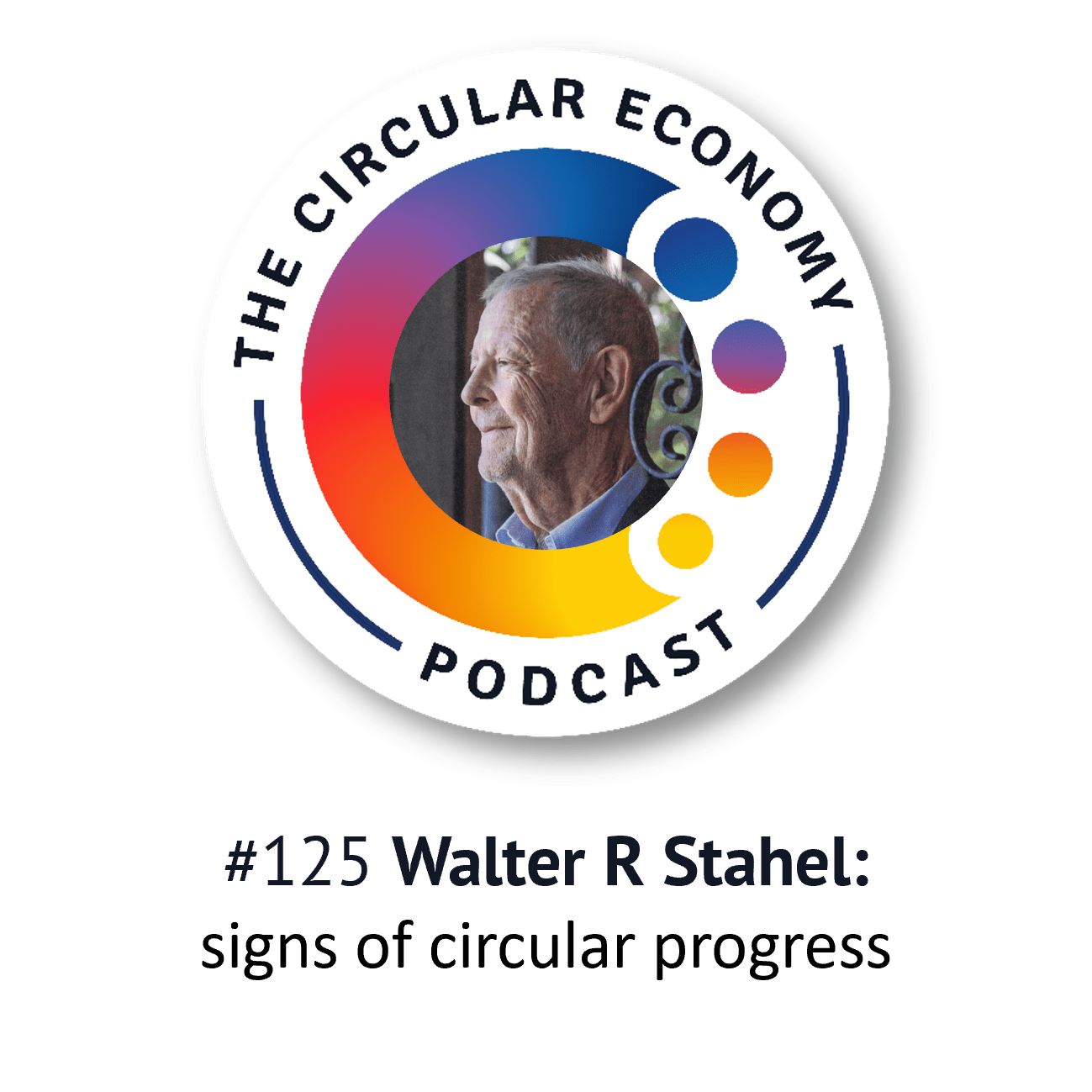Podcast: Play in new window | Download
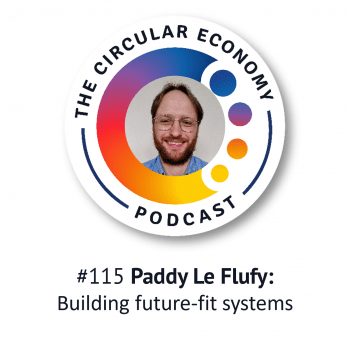
In today’s episode, Catherine Weetman is talking to Paddy Le Flufy about his book, Building Tomorrow: Averting Environmental Crisis With a New Economic System, which was published in March 2023. Paddy’s aim is to work out how we can improve our own society AND improve the lives of the billions of people currently affected by the dominant global systems.
We explore the broader context of a future-fit economy… how do we create the conditions for circular solutions to gain traction? What’s holding us back, particularly when we think about our economic systems, and the way companies are set up?
In A Circular Economy Handbook, Catherine included a chapter on Enablers and Accelerators for the circular economy, and today we’re going to explore a couple of important ideas that fit into those categories – concepts that aren’t circular in themselves, but are important ways to help circular approaches have even more impact.
Before embarking on this project, in 2015, Paddy had a somewhat different life. After a degree in mathematics at Cambridge University then qualifying as an accountant at KPMG in London, he lived something of a double life. He worked as a finance specialist in London for six months at a time, but then used his money to live in remote places, alongside people whose lives were drastically different from his own – and we’ll hear a bit more about that later.
Paddy’s book is featured on the 2023 Financial Times Best Book of Summer reading list, and has earned praise from Jeremy Lent.
“The book aims directly at creating systemic change by providing people with both a holistic vision of a new economic system and the tools with which to build it… Positive real-world examples and potential future developments show how people throughout society can help build the new system. Those that do will be creating a better world.”
Paddy will give us an overview of the 6 themes in the book, one of which is the circular economy, and we’ll then go a bit deeper with a couple of them, exploring different forms of company structures and learning more about regenerative organisations.
International speaker, author and strategic advisor, Catherine Weetman helps people discover why circular, regenerative and fair solutions are better for people, planet – and prosperity.
Catherine’s award-winning book: A Circular Economy Handbook: How to Build a More Resilient, Competitive and Sustainable Business includes lots of practical examples and tips on getting started.
Stay in touch for free insights and updates…
Read on for more on our guest and links to the people, organisations and other resources we mention.
Don’t forget, you can subscribe to the podcast series on iTunes, Google Podcasts, PlayerFM, Spotify, TuneIn, or search for “circular economy” in your favourite podcast app. Stay in touch to get free insights and updates, direct to your inbox…
You can also use our interactive, searchable podcast index to find episodes by sector, by region or by circular strategy. Plus, there is now a regular Circular Economy Podcast newsletter, so you get the latest episode show notes and links delivered to your inbox on Sunday morning, each fortnight. The newsletter includes a link to the episode page on our website, with an audio player. You can subscribe by clicking this link to update your preferences.
Links we mention in the episode:
- Circular Economy Podcast on LinkedIn: linkedin.com/showcase/circular-economy-podcast/
- Circular Economy Podcast website: circulareconomypodcast.com
- Catherine Weetman on LinkedIn: https://www.linkedin.com/in/catherine-weetman-9419107/
- A Circular Economy Handbook: How to Build a More Resilient, Competitive and Sustainable Business – buy from any good bookseller, or direct from the publisher Kogan Page, which ships worldwide (free shipping to UK and US) https://www.koganpage.com/CircEcon2
- Interactive podcast index https://www.rethinkglobal.info/circular-economy-podcast-index/
- Rethink Global www.rethinkglobal.info
- Sign up to get the podcast player and shownotes for each new episode emailed to your inbox
Links for our guest:
- Paddy’s website: https://paddyleflufy.com/
- The book on Amazon UK: https://www.amazon.co.uk/Building-Tomorrow-Averting-Environmental-Economic/dp/1739345207/ (if you / your audience would prefer it to not be an Amazon link, use my website Buy the Book page: https://paddyleflufy.com/buy-the-book/ )
- Linkedin: https://www.linkedin.com/in/paddy-le-flufy/
- Twitter: https://twitter.com/paddyleflufy
- Substack: https://paddyleflufy.substack.com/
Books, people and organisations we mentioned
- Opendesk — a global platform for local making https://www.opendesk.cc/about
- Intelligent Decentralisation – an article by Walter Stahel and Catherine Weetman (starts on p9 of this report): https://circulareconomyalliance.com/wp-content/uploads/2023/04/SFB-Report-2023.pdf
Guest bio
For eight years, Paddy Le Flufy has been focused on understanding how we can redesign our societal systems to avert the impending environmental catastrophe and improve our quality of life. He is now beginning to publish what he has learned, starting with a book, Building Tomorrow: Averting Environmental Crisis With a New Economic System, which was published in March 2023. He will follow this with a series of essays on various aspects of positive societal transformation, to be published over the rest of the year.
Before this period, Paddy had a somewhat different life. He first earned a degree in mathematics at Cambridge University and qualified as an accountant at KPMG in London. Then he spent years living something of a double life. He worked as a finance specialist in London for six months at a time, but he used his money to live in remote places, alongside people whose lives were drastically different from his own.
He has travelled with economic migrants, been taught to fish by rural Mozambicans, and lived with Hadza hunter-gatherers. He spent two months living with an indigenous tribe in the Amazon rainforest, then won a Royal Geographical Society Award to spend an entire year being taught by traditional wisdom-keepers from another jungle culture.
In 2015, Paddy paused his travels to concentrate on how we can improve our own society – and in doing so, improve the lives of the billions of people currently affected by the dominant global systems.
Playlist: getting started with the circular economy…
Want to know more about the what the circular economy really is, and how it can help your business? Here’s a playlist to help you get to grips with the concept, how it creates value, and the common myths (spoiler alert – it’s much more than recycling!)
- #1 What is the circular economy: A quick intro to explain what the circular economy is and why it’s important. We explore how it helps create better products and services, and at the same time helps to make a better world. I break it down into my 5 circular economy components, helping you think about each part of your business.
- #2 The linear economy and your risk checklist: We dig a bit deeper into the way we do business now, the linear economy, and why that’s creating problems for business, society and our living planet. Also, we’ll look at the risks that emerge from those big-picture issues, and how they might affect your organisation.
- #90 Does circular mean it’s sustainable? Does circular mean it’s sustainable? Catherine Weetman is worried that companies are using circular economy solutions to grow their business (and their footprints).
- #101 Circular is better for people, planet and profit! How three simple strategies can help you get started with circular and regenerative solutions that are better for people, planet and profit
And here’s Catherine’s guide: What is the circular economy?
Want to dig deeper?
Why not buy Catherine’s award-winning book, A Circular Economy Handbook: How to Build a More Resilient, Competitive and Sustainable Business. This comprehensive guide uses a bottom-up, practical approach, and includes hundreds of real examples from around the world, to help you really ‘get’ the circular economy. Even better, you’ll be inspired with ideas to make your own business more competitive, resilient and sustainable.
Please let us know what you think of the podcast – and we’d love it if you could leave us a review on iTunes, or wherever you find your podcasts. Or send us an email…
Please let us know what you think of the podcast – and we’d love it if you could leave us a review on iTunes, or wherever you find your podcasts. Or send us an email…
Podcast music
Thanks to Belinda O’Hooley and Heidi Tidow, otherwise known as the brilliant, inventive and generous folk duo, O’Hooley & Tidow for allowing me to use the instrumentals from the live version of Summat’s Brewin’ as music for the podcast. You can find the whole track (inspired by the Copper Family song “Oh Good Ale”) on their album, also called Summat’s Brewin’. Or, follow them on Twitter.
